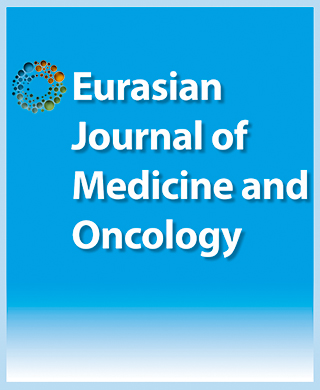

Oral Amiodarone-induced Liver Injury with Gamma Glutamyl Transferase Elevation: A Case Report
Mehmet Zahid Kocak1, Nurullah Ilhan1, Süleyman Özsarı2, Kemal Fidan31Department of Internal Medicine, Bitlis Guroymak State Hospital, Bitlis, Turkey, 2Department of Family Medicine, Ankara University Faculty of Medicine, Ankara, Turkey, 3Department of Internal Medicine, Bitlis State Hospital, Bitlis, Turkey,
Amiodarone-induced hepatotoxicity varies from asymptomatic serum aminotransferase elevation to severe liver disease. Aspartate aminotransferase, alanine aminotransferase, and lactate dehydrogenase are known to be elevated in amiodarone-induced liver damage. However, no study in the literature has reported that gamma glutamyl transferase (GGT) is elevated in this condition. Described is the case of an 82-year-old female patient with elevated GGT while using oral amiodarone for rapid response atrial fibrillation. The GGT level decreased after amiodarone was discontinued. GGT elevation was considered to be a potentially prominent drug side effect according to the Council for International Organizations of Medical Sciences/ Roussel Uclaf Causality Assessment Method scale. GGT is found in biliary epithelial cells and hepatocytes. GGT elevation may be due to drug or alcohol use. Histological changes in alcoholic liver disease and those in liver injury due to amiodarone toxicity are similar. It is thought that amiodarone-induced liver injury and GGT elevation are related to this histological similarity.
Cite This Article
Kocak M, Ilhan N, Özsarı S, Fidan K. Oral Amiodarone-induced Liver Injury with Gamma Glutamyl Transferase Elevation: A Case Report. EJMO. 2018; 2(2): 117-119
Corresponding Author: Mehmet Zahid Kocak



